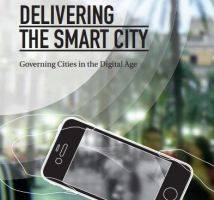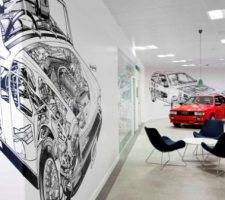November 24, 2014
Arup and UCL report offers up lessons from smart cities pioneers
 A new report published by engineering and design consultancy Arup and University College London claims that the pioneers of the smart cities movement need to take a more strategic approach to ensure that their spending on IT infrastructure is effective in meeting their objectives. The report Delivering the Smart City: Governing Cities in the Digital Age is based on research of eight cities including London and Bristol in the UK alongside a number of other prominent global cities such as Chicago, Barcelona, Stockholm and Hong Kong. The report found that the cities spend an average of 6 percent of their expenditure on IT services and technology, which amounts to approximately £23 million per city across the study and is roughly equivalent to the amount budgeted in the financial services sector worldwide. While the authors welcome this as a sign that tech spending is taken seriously, they also claim that more could be done to target this spending effectively and tailored to the specific needs of each city depending on factors such as its ‘ecosystem’, culture and governance. It believes that the lessons from this are appropriate to all cities, not just those already pursuing a smart agenda.
A new report published by engineering and design consultancy Arup and University College London claims that the pioneers of the smart cities movement need to take a more strategic approach to ensure that their spending on IT infrastructure is effective in meeting their objectives. The report Delivering the Smart City: Governing Cities in the Digital Age is based on research of eight cities including London and Bristol in the UK alongside a number of other prominent global cities such as Chicago, Barcelona, Stockholm and Hong Kong. The report found that the cities spend an average of 6 percent of their expenditure on IT services and technology, which amounts to approximately £23 million per city across the study and is roughly equivalent to the amount budgeted in the financial services sector worldwide. While the authors welcome this as a sign that tech spending is taken seriously, they also claim that more could be done to target this spending effectively and tailored to the specific needs of each city depending on factors such as its ‘ecosystem’, culture and governance. It believes that the lessons from this are appropriate to all cities, not just those already pursuing a smart agenda.






















November 19, 2014
Worktech 14 London focuses on wellbeing, wherever we choose to work
by Sara Bean • Comment, Events, Facilities management, Flexible working, Wellbeing
The variety of ways in which technology can help us thrive at work was one of the key themes of the first day of Worktech 14, which also provided yet more evidence that the workplace is no longer based in any one place. There were some interesting ruminations on the changing values of the workplace, which included the challenges of managing mobile working and its wider effects on our wellbeing; a topic that merited a whole series of sessions, including, how office design can aide brain function; analysing the psychological effects of the ‘always on’ culture and the role of the employer in combating the rise in western obesity. Meeting room no-shows run at around 35% for most companies and in an illuminating co-presentation on estates utilisation with Condeco, Bruce Everest of Vodafone described how the mobile giant has transformed its offices into collaborative space. There were also some thought provoking sessions that peered into the future, including the statement by a speaker from none other than Intel that ‘technology alone is not our salvation’ and a fascinating glimpse into the workplace of 2040 provided by Marie Puybaraud of Johnson Controls. (more…)